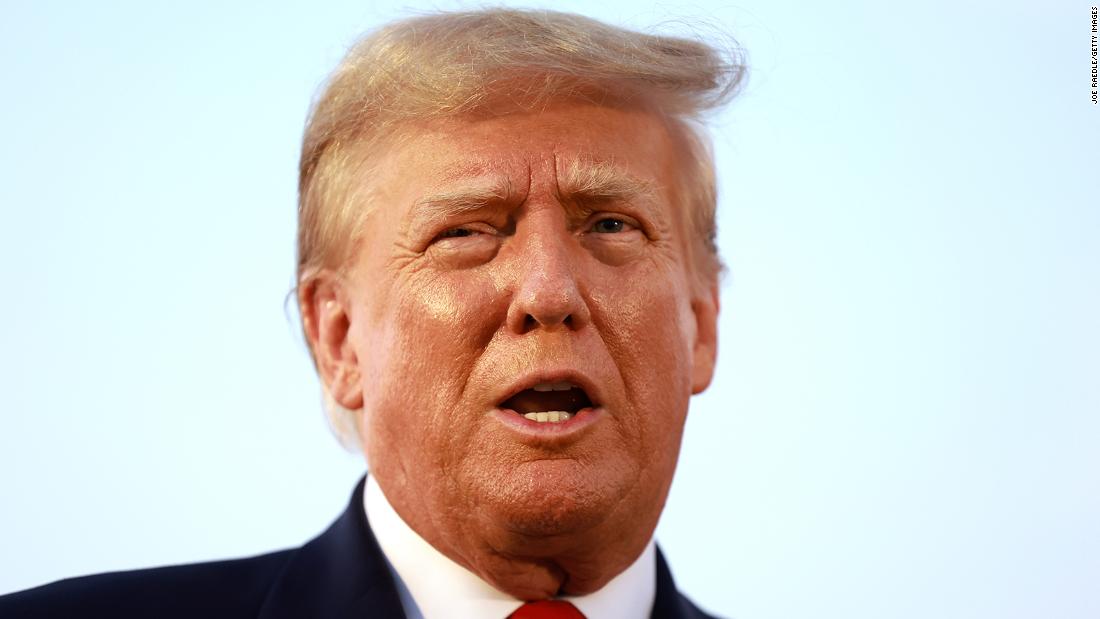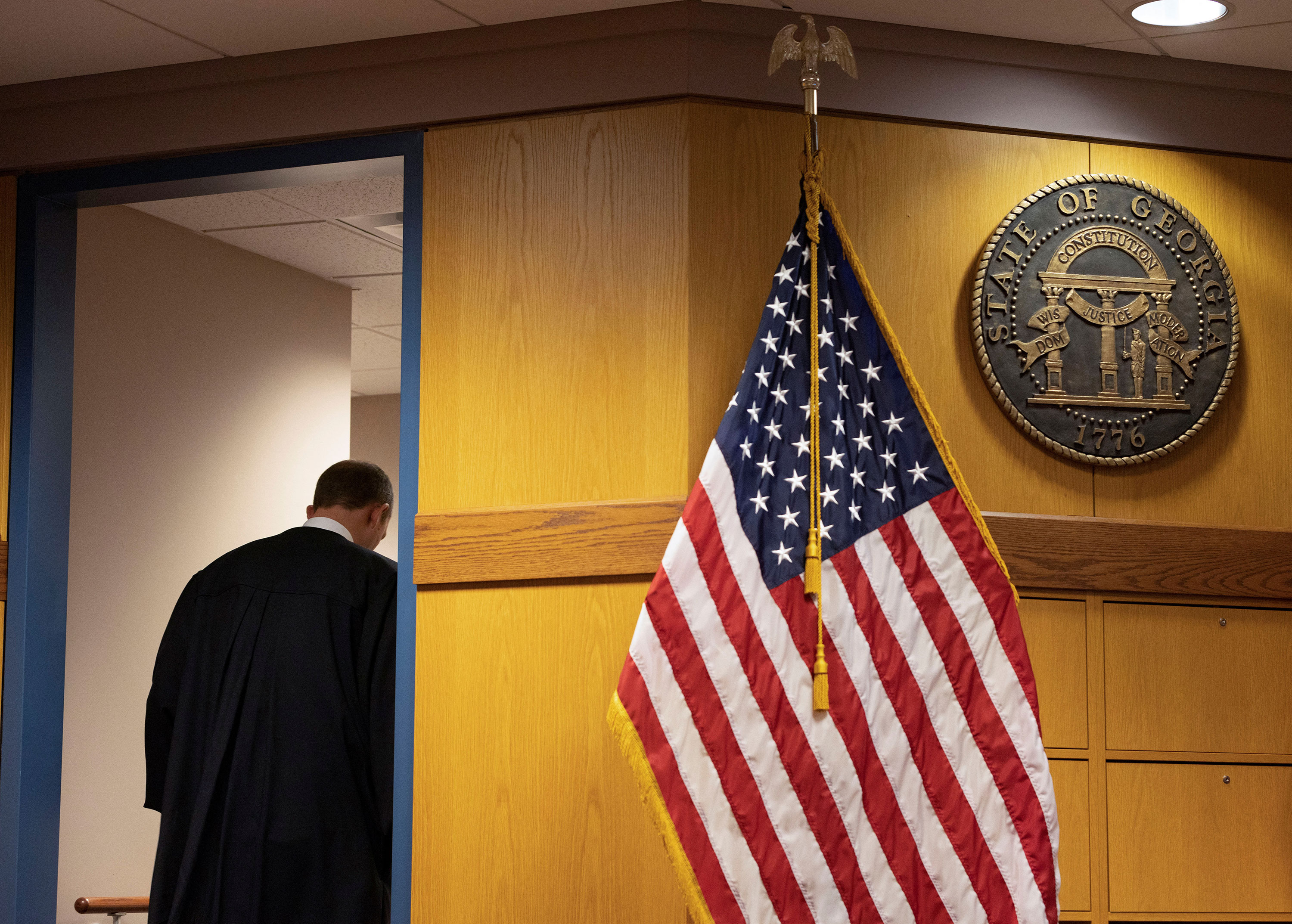

Former President Donald Trump’s attorneys in the Georgia election subversion case are set to defend their client in a Fulton County courtroom for the first time on Friday as they try to have the charges thrown out on First Amendment grounds.
The historic indictment of Trump and 18 co-defendants in August, which includes felony racketeering charges, is one of several legal cases facing the former president. But it’s in Georgia where he and his alleged co-conspirators face a combined 41 state charges for trying to overturn legitimate election results in the 2020 presidential election.
Since the indictment, four of the co-defendants – including three of his former attorneys – all cut deals with prosecutors to plead guilty and testify against Trump in return for staying out of jail. The remaining 15 defendants, including Trump, have pleaded not guilty.
Here’s what to watch for today:
Trump’s Georgia lawyers make First Amendment claims: Friday’s motions hearing is scheduled to hear arguments from Trump’s attorneys on why they want to throw out the indictment on First Amendment grounds, according to a recent motion filed by his latest attorney.
Once represented by the so-called “Billion Dollar Attorney” Drew Findling – a Democrat and vocal opponent of Trump – now the former president is represented by famed Atlanta criminal defense attorney Steven Sadow and Atlanta defender Jennifer Little.
This is the first time Trump’s attorneys will appear in court in the Fulton County case, though their client won’t be with them. Trump hasn’t yet been in the Atlanta courthouse – he previously waived his right to an arraignment hearing – though he was processed at the Fulton County jail in late August.
In a filing on Monday, Sadow argued that Trump’s peddling of conspiracy theories and claims of widespread voter fraud in the 2020 presidential election were at their core political speech, and therefore Trump never should have been indicted.
“…the indictment’s recitation of supposedly ‘false’ statements and facts, undisputed solely for purposes of a First Amendment-based general demurrer/motion to dismiss, show that the that the prosecution of President Trump is premised on content-based core political speech and expressive conduct protected by the First Amendment,” Sadow wrote.
The remedy for false speech in a “free society” is not a criminal indictment, he added.
“The response to the unreasoned is the rational; to the uninformed, the enlightened; to the straightout lie, the simple truth.”). The remedy is not a state RICO prosecution against the former President of the United States,” Sadow wrote.
Fulton County Superior Court Judge Scott McAfee has previously ruled against First Amendment challenges by Trump co-defendants Kenneth Chesebro and Sidney Powell, two of the former president’s lawyers who later pleaded guilty. Chesebro and Powell were seeking dismissal of the indictment under the supremacy clause of the United States Constitution. In his denial, McAfee ruled that various case law pointed to facts and evidence needing to be established in a courtroom before a First Amendment challenge can even be considered.
Read more about the Georgia election subversion case.
